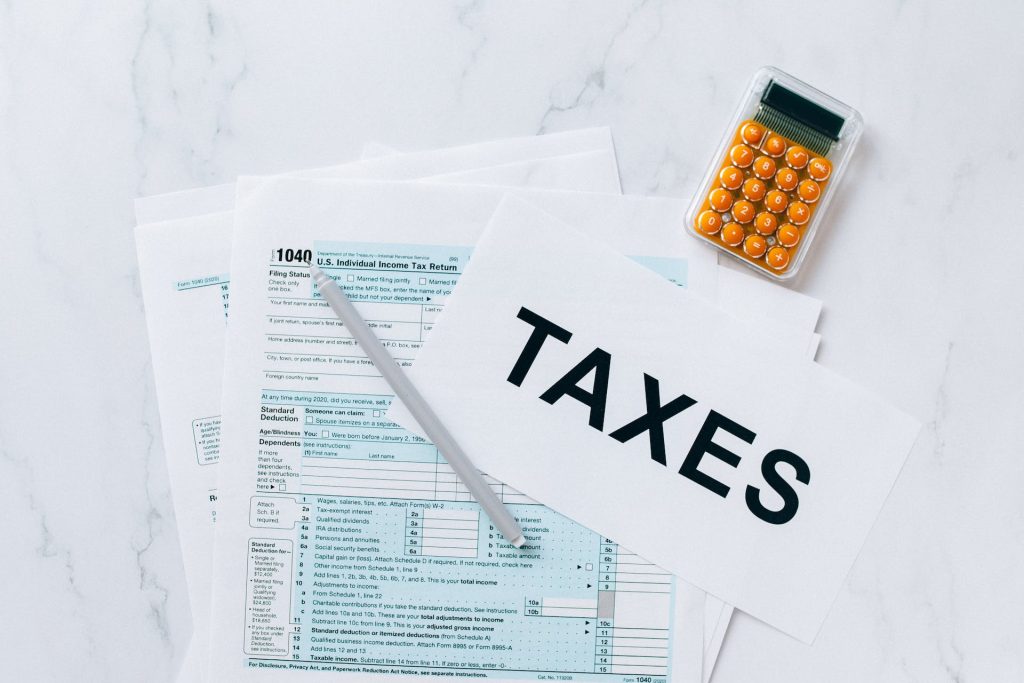Infrastructure bonds are a type of investment that is issued by the government to fund public infrastructure projects such as roads, bridges, and buildings. In Kenya, infrastructure bonds are becoming increasingly popular due to the country’s growing need for infrastructure development. The government has been using these bonds to finance various projects, including the rehabilitation of roads and the expansion of the Jomo Kenyatta International Airport.

Investing in infrastructure bonds can be an attractive option for investors looking for a steady stream of income. These bonds typically offer higher yields than other types of fixed-income securities such as treasury bonds and bills. Additionally, infrastructure bonds are often tax-exempt, which can further increase their appeal to investors. However, it is important to note that investing in bonds does come with risks, including the possibility of default by the issuer. It is essential for investors to conduct thorough research and seek advice from financial professionals before making any investment decisions.
Overview of Infrastructure Bonds in Kenya

Infrastructure bonds are a type of debt security issued by the government to finance infrastructure projects such as roads, bridges, and public utilities. These bonds are typically long-term investments with maturities ranging from 5 to 20 years.
In Kenya, the government issues infrastructure bonds through the Central Bank of Kenya (CBK) on behalf of the National Treasury. These bonds are aimed at raising funds to finance various infrastructure projects across the country.
Infrastructure bonds in Kenya are tax-free, which makes them an attractive investment option for both local and foreign investors. The interest earned on these bonds is exempt from income tax, making them a popular choice for investors seeking tax-efficient investments.
The government has issued several infrastructure bonds in recent years, with maturities ranging from 6.5 to 14 years. These bonds have been oversubscribed, indicating strong investor demand for infrastructure investments in Kenya.
Investing in infrastructure bonds in Kenya requires a minimum investment amount, which varies depending on the bond issue. Investors can purchase these bonds through licensed stockbrokers or directly from the CBK.
Overall, infrastructure bonds in Kenya are a viable investment option for investors looking to invest in the country’s development. With tax-free earnings and a range of maturities, these bonds offer a compelling investment opportunity for both local and foreign investors.
Regulatory Framework for Infrastructure Bonds
Infrastructure bonds are regulated by the Capital Markets Authority (CMA) and the Central Bank of Kenya (CBK) in Kenya. The regulatory framework is aimed at ensuring that the bonds are issued and traded in a transparent and fair manner that protects both investors and issuers.
Governing Bodies
The CMA is responsible for the registration of infrastructure bond issuers, while the CBK is responsible for the approval of the prospectus and the issuance of the bonds. The CMA also regulates the primary and secondary markets for infrastructure bonds, while the CBK is responsible for the management of the government’s debt and the payment of interest and principal on the bonds.
Legal Requirements
Infrastructure bonds are issued under the Income Tax Act, which provides for tax exemptions on the interest income earned by investors. The bonds are also subject to the Companies Act and the Securities Act, which require issuers to disclose relevant information to investors and the public.
To issue infrastructure bonds, issuers must meet certain requirements, such as having a minimum net worth and a track record of profitability. They must also provide a detailed prospectus that outlines the terms and conditions of the bond, including the interest rate, maturity date, and redemption schedule.
Investors in infrastructure bonds must be registered with the CBK and must have a minimum investment amount. They are also required to provide their tax identification number and other relevant information to the issuer.
Overall, the regulatory framework for infrastructure bonds in Kenya is designed to promote transparency, fairness, and investor protection. As a result, infrastructure bonds have become an attractive investment option for both local and foreign investors looking to invest in Kenya’s infrastructure development.
Economic Impact of Infrastructure Bonds

Financing Infrastructure Projects
Infrastructure bonds have played a significant role in financing infrastructure projects in Kenya. These bonds have enabled the government to raise funds to finance the construction of roads, bridges, airports, and other critical infrastructure projects. The funds raised from infrastructure bonds have been used to finance both public and private infrastructure projects, which have had a positive impact on the country’s economic growth.
Effects on the Kenyan Economy
Infrastructure bonds have had a positive impact on the Kenyan economy. The construction of new infrastructure projects has created jobs and stimulated economic growth. Infrastructure projects have also improved the country’s transportation and communication systems, which has made it easier for businesses to transport goods and communicate with customers. This has led to increased economic activity and improved the country’s overall economic performance.
Moreover, infrastructure bonds have attracted foreign investors to invest in Kenya’s infrastructure projects. This has led to increased foreign investment in the country, which has had a positive impact on the country’s balance of payments. Additionally, infrastructure bonds have enabled the government to finance infrastructure projects without increasing taxes or borrowing from foreign lenders, which has helped to maintain the country’s fiscal stability.
In conclusion, infrastructure bonds have played a critical role in financing infrastructure projects in Kenya and have had a positive impact on the country’s economic growth. The funds raised from infrastructure bonds have been used to finance both public and private infrastructure projects, which have created jobs, stimulated economic growth, and improved the country’s transportation and communication systems.
Challenges and Considerations
Investor Confidence
One of the main challenges facing infrastructure bonds in Kenya is the issue of investor confidence. Investors may be hesitant to invest in infrastructure bonds due to concerns about political instability and economic uncertainty. Additionally, there may be concerns about the ability of the government to repay the bonds in a timely manner.
Market Liquidity
Another consideration for investors in infrastructure bonds is market liquidity. Infrastructure bonds may be less liquid than other types of bonds, meaning that investors may have difficulty selling their bonds if they need to do so quickly. This can create additional risk for investors, as they may not be able to access their funds when they need them.
Risk Assessment
When considering investing in infrastructure bonds, investors must carefully assess the risks involved. In addition to the risks associated with political instability and economic uncertainty, there may be risks associated with the specific infrastructure project being funded by the bond. For example, if the project is delayed or encounters unexpected problems, it may be difficult for the government to repay the bond on time.
To mitigate these risks, investors should carefully review the prospectus for the bond and conduct their own due diligence. They should also consider diversifying their investments across multiple infrastructure bonds to reduce their exposure to any one project or issuer.
Frequently Asked Questions
What are the different types of infrastructure bonds available in Kenya?
The Kenyan government issues infrastructure bonds to finance various infrastructure projects in the country. There are different types of infrastructure bonds, including fixed-rate bonds, floating-rate bonds, and inflation-indexed bonds. Fixed-rate bonds have a predetermined interest rate that remains constant throughout the life of the bond. Floating-rate bonds have interest rates that adjust based on market conditions. Inflation-indexed bonds are designed to protect investors from inflation by adjusting the bond’s principal and interest payments based on changes in the inflation rate.
How can one calculate the potential returns on infrastructure bonds in Kenya?
The potential returns on infrastructure bonds in Kenya can be calculated by using the bond’s yield to maturity (YTM). YTM is the total return anticipated on a bond if the bond is held until it matures. It takes into account the bond’s current market price, its face value, the coupon rate, and the time left until maturity. Investors can use online calculators or consult with a financial advisor to calculate the YTM of an infrastructure bond.
What is the process for purchasing infrastructure bonds in Kenya?
Investors can purchase infrastructure bonds in Kenya through authorized dealers, including commercial banks, investment banks, and stockbrokers. The Central Bank of Kenya issues infrastructure bonds on behalf of the government, and investors can participate in the bond auctions conducted periodically by the Central Bank. Investors need to have a Central Depository System (CDS) account to participate in the bond auctions.
What were the interest rates for infrastructure bonds in Kenya for the year 2023?
The interest rates for infrastructure bonds in Kenya vary depending on the type of bond and the prevailing market conditions. The Central Bank of Kenya issues infrastructure bonds periodically, and the interest rates for each bond issue are determined through an auction process. For example, the November 2023 Infrastructure Bond Offer had a coupon rate of 6.5% and a final redemption date of May 6, 2030.
How can investors make a profit from Treasury bonds in Kenya?
Investors can make a profit from Treasury bonds in Kenya by purchasing the bonds at a lower price and selling them at a higher price. Treasury bonds are typically issued at a face value of Kshs 50,000, and investors can purchase them at a discount or premium depending on market conditions. Investors also earn interest on the bonds, which is paid out periodically until the bond reaches maturity.
What are the current infrastructure bonds on offer by the Central Bank of Kenya?
As of January 2024, the Central Bank of Kenya is offering several infrastructure bonds, including the June 2023 Infrastructure Bond Offer, the November 2023 Infrastructure Bond Offer, and the September 2021 Infrastructure Bond Offer. Each bond has different coupon rates, maturities, and redemption structures. Investors can consult with a financial advisor or visit the Central Bank’s website for more information on the current infrastructure bonds on offer.

